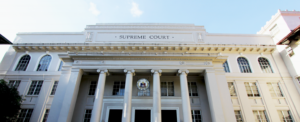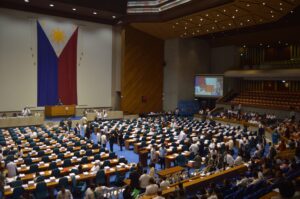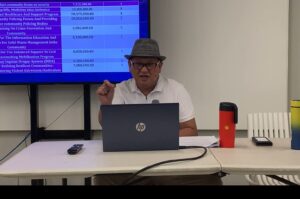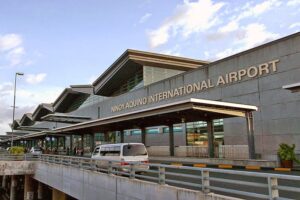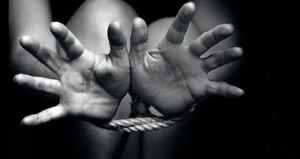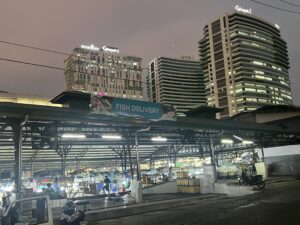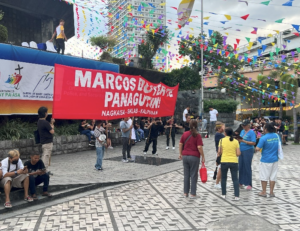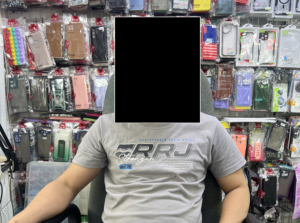VILNIUS — Backpacking in Europe at ₱1,600 (approximately €26) a day seems impossible. Except that I have done it for over two months now. My hostel in this capital city of Lithuania, for example, costs €12 a night. In Riga, Latvia before this, it was €18 a night; and in Krakow, Poland where I’m going next, my hostel costs €11 a night.
There are a few things you have to understand about how I travel though:
- I am a hostel boy. I book the cheapest dorm type bed, usually in a mixed (as opposed to all female) six- or eight-bed room. I don’t care much for privacy. I am okay sharing shower rooms and toilets down the hall. I am fine with fellow male travelers sleeping or getting naked in our room. All I need is a place to put my head on when I am sleepy; and a cabinet to store my bags, laptop, passport and wallet.
- I travel with cheap face towels and a malong. The face towels I may discard after a week, depending on how much I’ve used them. The old reliable malong often becomes my body towel. To be fair, the more expensive hostels provide free towels. Some hostels rent towels at €2 for your entire use/stay.
- I eat when I can, or only when I’m hungry. Some hostels offer free breakfast of cereals, bread, fruits, and hot beverages. I take advantage of this meal arrangement when available. In cheaper hostels, at the very least they have coffee and tea. I am okay with just black coffee in the morning.
- I can make omelets, stir-fry vegetables, and invent sandwiches. I often buy eggs, some meats, ham, sausages, vegetables, bread, fruits when I stay in a place for longer than a day. I have a €5 per day budget for food when I do the grocery. (For reference, six eggs cost €2.15 in this city; and one big banana costs €0.32.) Normally, the hostels have cooking utensils and a kitchen; and often, spices and condiments courtesy of previous guests.
- I drink tap water. I don’t ever buy bottled water (costs between €2 and €4 per liter) except in emergencies. I Google the purity index of water in every city I go, and if it’s greater than 50%, I consider it potable. The cleanliness index of water in the Philippines is 33-35%, and I readily drink that! Unless you are in some remote parts of Africa or Asia, I think bottled water is a scam.
- I am a walker, not a city commuter. 16-20 kms is nothing to me. That’s like my 16,000 steps; and I have trained myself to walk 20,000 steps minimum in the past year or two. So yeah, I walk to the tourist sites, and hike to attractions that are within the 10-km radius. The one true thing is, and I always say this, “My money is not unlimited, but my time is limitless!” Seriously, I see a lot more than other tourists because I walk (and often get lost) in places they do not dare to tread.
- I look for the cheapest fares. Be it for planes, bus, trains or boats. The cheapest often means longer durations (layovers, multiple transfers) and inconvenient times (too early in the morning, or too late at night). Now, if it saves me €20, I’m taking that inconvenience. I got the time!
- I am a strategic planner. I choose hostels closest and most walkable to and from my airport or bus/train stations. While the city centers are usually exciting places (and therefore often more expensive), I don’t want the stress of being late for my next departure (or being too lost upon my arrival). I also mean that I love walking to the city center if it’s a kilometer or so father away from my hostel.
Most people want to enjoy a vacation when they travel in Europe. They want to be pampered. Hotels, planned itineraries, booked tours, shopping. And that’s why they have to have the money; they also don’t have the time.
Me? I travel cheaply. I stay longer to imbibe the culture. I get to know people— the locals, and my fellow travelers. Because I have the time. Time to build friendships, time to understand other cultures, time to heal the world.
***
(Peter Solis Nery is a multi-awarded Filipino poet, fictionist, filmmaker and playwright who divides his time living in the Philippines and traveling around the world. He is a Palanca Awards Hall of Famer, and the first Filipino author invited to the Sharjah International Book Fair in the United Arab Emirates.)


